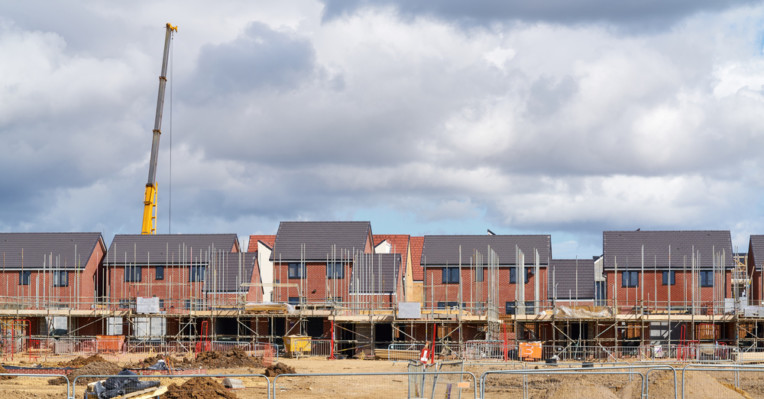For property managers working in the UK rental market, times have changed dramatically since the pandemic hit hard. But, the good news is that many of the emerging trends are proving beneficial to the market. Demand for rental properties up Strong demand for rental properties has continued with economic uncertainty and tighter mortgage lending driving people away from house purchase. At the same time, shortage of new rental properties has kept rent levels up. UK rental income in June was on the rise — up 1.1 percent on average compared with equivalent figures for June 2019. However, the difference in rental variations was quite significant. In the North West, for example, average rents in June were up 6.6 percent on the same period in 2019. In contrast, the South West saw an increase of just 1.8 percent for the same period. The East of England saw no change, while the North East and South East saw decreases with Greater London experiencing the biggest fall of 1.8 percent. There was a surge in demand for rental properties in May, but supply was not keeping up, in contrast to the boom in build-to-let. . Build-to-let increasing Build to rent (BTR) is one of the fastest growing sectors in the UK property market. According to recent figures from the British Property Federation, there are now 167,853 BTR homes in the UK, up from 157,512 in Q1 2020. BTR properties are owned by companies and custom-designed for rental by multiple occupants. They carry strong branding, making them easier to market than individual properties. Unlike private accommodation, BTR properties provide management services and offer shared facilities such as gyms. They are designed to appeal to long-term renters who may not be able or interested in buying a home and provide long-term stable revenue streams compared to private fluctuating short-term income. House prices more affordable Demand in the wider housing market has been stimulated by the Chancellor’s Stamp Duty holiday, which has made house purchase more affordable, particularly for properties under £500,000. As an example, Bromley in South East London saw an astonishing 83 percent rise in enquiries following the announcement. Rightmove calculated that a buyer in London would save around £15,000 on average. That lower cost is also encouraging landlords to increase their portfolios to take advantage of sustained demand for rental properties. Technology adoption increasing The pandemic and the subsequent lockdown have accelerated the adoption of technology in the rental market -a sector that has traditionally lagged behind the rest of the property market. That can make it easier for property managers to do business. The ability to put property details online and integrate sophisticated search functions can make it easier to match tenants and property owners. It also improves convenience for tenants, giving a competitive advantage to property managers offering online search. The wider availability of online data on trends makes investment planning and resource allocation more accurate and effective, helping property managers improve ROI on rental properties. For property managers with smaller rental portfolios, online tools are available to simplify property valuation. Adding information on details of the property – the number of bedrooms, whether the property is larger or smaller than average and an estimate of its condition – into the tool provides a professional valuation in minutes. Arranging and conducting viewings in person can be very time consuming. The lockdown forced landlords to offer virtual viewings by video and this is now recognised as a practical alternative by both tenants and landlords. There is a cost to produce the initial video, but this can be used for multiple viewings and may be more cost-effective than the same number of personal viewings. Landlords lifes are also being made easier. Letting agent comparison sites like Rentround help landlords save on their agent fees and recoup more rental property profits Going online to speed up processes Access to online databases can simplify and speed up processes like tenant identity verification or credit checks, which are essential elements of the letting process. Similarly, landlords or property managers are now able to customise tenancy agreements online before digitally sending them to the tenant and having them electronically signed. One of the main aims of property technology is to create ‘frictionless transactions’. Creating online rental documentation, accepting digital signatures on contracts exchanged online and online payment systems to simplify rent collection are examples of the way technology is changing the traditional property management/tenant relationship. As well as saving time and money, online transactions improve customer service and convenience for tenants. Communication with tenants can be improved by making greater use of videoconferencing tools like Zoom or Cisco Webex, which has been widely adopted during the pandemic. Those tools also improve communication with colleagues and other property professionals such as lawyers, letting agents and surveyors. Property managers who want to work with letting agents can make significant savings by using online services. High street agents’ fees cost 8 percent or more of the rental price for advertising, interviewing and credit checks. Online agents’ charges for a similar service attract an average set fee of around £50, with Portico Direct charging just £1 to advertise on Rightmove, Zoopla and On The Market. Navigating the new landscape Continuing change in the rental market coupled with economic uncertainty poses many challenges for property managers. However, adopting the many innovations and benefits of property technology can help managers maintain greater control and improve the efficiency of their operations.








